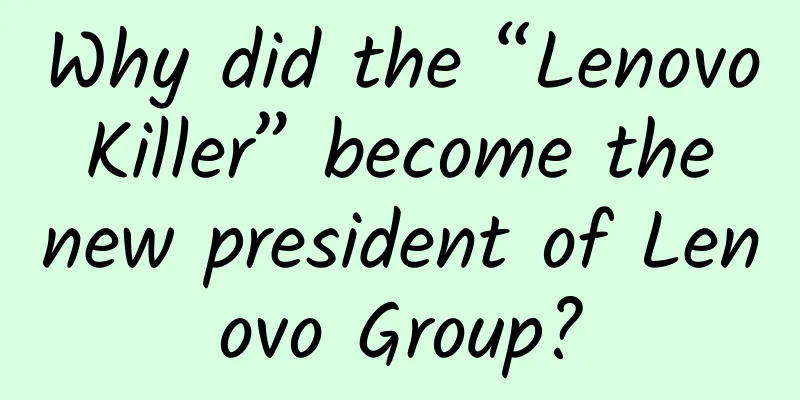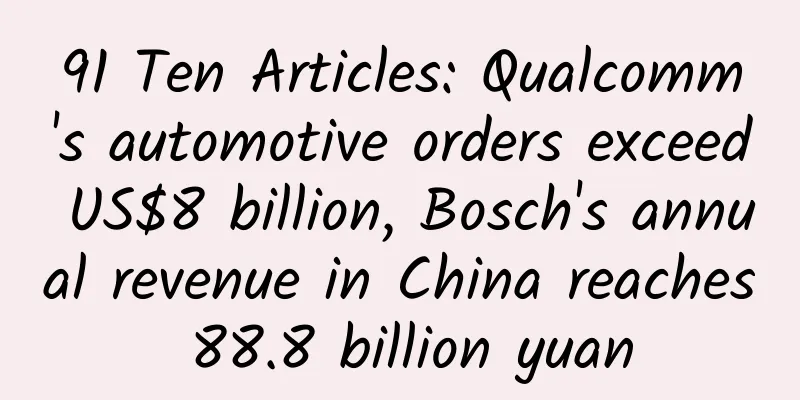Why did the “Lenovo Killer” become the new president of Lenovo Group?

|
After integrating the recently completed mergers and acquisitions, Lenovo Group will recently restructure its business groups and regional deployments. Former Chief Operating Officer Gianfranco Lanci was appointed as President of Lenovo Group, becoming the leader of all five regions and the PC and Enterprise Business Group of Lenovo, and responsible for the business performance of the relevant areas and the end-to-end responsibility of the business management system. So why did Lenovo want to adjust its organizational structure at this time? Why was Lanci appointed to be responsible for Lenovo's PC and enterprise business? Industry insiders familiar with Lanci know that before Lanci joined Lenovo, he had been the CEO of Acer, and even earlier he was the general manager of Acer Europe. In the PC market at that time, Lenovo was aggressively attacking the overseas PC market, mainly in the United States, due to the acquisition of IBM PCD. However, Lenovo's aggressive overseas market strategy caused it to suffer heavy losses in the US market, so Lenovo hoped to turn to Europe to seek overseas breakthroughs in PCs. Of course, the way was to acquire Packard Bell (hereinafter referred to as PB), the third largest PC manufacturer in Europe at that time. However, contrary to the industry's expectations, Acer acquired Gateway in the United States before Lenovo (thereby obtaining the priority to acquire PB), and then acquired European PC manufacturer PB. This related acquisition not only cut off Lenovo's path to opening up a second overseas PC battlefield, but also pulled Lenovo down from the third place in the global PC market at that time. Since then, Lenovo has been seriously injured and has not been among the top three in the global PC market for quite a long time. What was even more fatal was that Lenovo's PC business was once in a slump. It was not until Liu Chuanzhi, then chairman of Lenovo's board of directors, returned to Lenovo and shifted Lenovo's strategic focus from overseas markets to the Chinese market that Lenovo gradually recovered. According to Liu Chuanzhi's description of Lenovo's situation at the time: Lenovo was on the edge of a cliff. It can be seen that Acer's strategic vision under Lanci's leadership at the time, and Lanci was nicknamed the Lenovo killer in the industry. Some people may question why Acer fell in the PC market after Lanci was so great, and why Lanci resigned from Acer? The official explanation given by Acer at that time for Lanci's departure from Acer was that Lanci and most of the board members had different views on the overall strategy for the company's future development, and these differences had not been agreed upon in the past few months of communication. Lanci had different views on the selection of future products, company value and resource allocation. However, judging from Acer's market performance after Lanci left Acer, it is obvious that those who held different opinions and strategies from Lanci failed to help Acer get out of the decline. From this point of view, Lanci's strategy at that time may not have been wrong. Fortunately, Lenovo had a keen eye for talent and pulled Lanci into its own team. Of course, Lanci's strategic vision and role in the enterprise also played an important role in his joining Lenovo, where he was responsible for leading and expanding Lenovo's global core PC business, managing business in Europe, the Middle East, Africa and the Asia-Pacific region, operational integration, strategic alliances, and promoting Lenovo Group's business review and operational processes. Not long after Lanci became Lenovo's COO, Lenovo defeated HP to become the leader in the global PC market. From being Lenovo's killer to helping Lenovo to top the global PC market, Lanci has proven his ability. And this ability is particularly valuable in Lenovo's current transformation. As we all know, although Lenovo is currently transforming from a traditional PC company to a mobile Internet company and has achieved considerable results, it is also facing fierce competition. First of all, in the domestic market, Lenovo was the second largest smartphone manufacturer after Samsung in 2013, but was surpassed by Xiaomi last year and ranked only third. The gap with Huawei, which ranked fourth, was only 1.4 percentage points, but in terms of growth rate, it is already lower than Xiaomi and Huawei. In the global smartphone market, although Lenovo acquired Motorola Mobility, it still ranked fourth last year. What makes Lenovo feel more pressured is that although the profit margin is not high among Chinese mobile phone manufacturers, according to previous analysis and forecasts by Merrill Lynch Securities, from this year to 2017, the profit margins of Xiaomi and Huawei can still reach high single digits. In contrast, Lenovo's profit margin is only around 0%-1%. This means that in the future, Lenovo may lag behind its main Chinese competitors in terms of both shipments and profits in the smartphone market. Of course, this is related to the fact that Motorola Mobility was losing about $100 million per quarter before the acquisition. Integration takes time, and whether Lenovo can extend this time and obtain sufficient support (revenue and profit) during this time is particularly important. So where does this support come from? In the last quarter, Lenovo experienced a rare profit decline after accounting for Motorola Mobility and IBM x86 service business, but due to the growth of PC business, especially the improvement of gross profit margin, the decline of its profit was lower than the industry's expectations, so its stock price still rose. But it is undeniable that due to the pursuit of gross profit margin, Lenovo still ranked first in the global PC market last quarter, but its lead over the second-ranked HP was less than one percentage point, and its year-on-year growth rate was also lower than HP and Dell. In the selection of the best notebook computer brands in 2015 by the well-known notebook computer magazine Laptop Magazine, Lenovo's comprehensive score has slipped from the second place in 2011 to the sixth place this year. It can be seen that the PC business itself, which is the main support for Lenovo's transformation, is also facing challenges. Similar to the PC business, Lenovo took the first place in terms of revenue and shipments in the Chinese x86 server market last quarter after acquiring IBM's x86 server business. However, from the perspective of the global server market, although Lenovo has entered the fourth place in the global server market with a revenue share of 7.6%, it is only a little more than half of IBM, which ranks third, and less than 1/3 of HP, which ranks first. From the perspective of shipments, although Lenovo has jumped to the third place in the world with a market share of 9%, it is less than 1/2 of Dell, which ranks second. In markets such as Europe, Africa, and the Middle East, Lenovo's server gap with HP and Dell in terms of both revenue and shipments is even greater. In addition, the acquired IBM x86 server business itself is in decline, and it is self-evident that the server business, as an important part of Lenovo's enterprise business, will face growth challenges in the future. However, compared with the smartphone industry, the server market is relatively less competitive, and has strong similarities and overlaps with PCs in terms of supply chain, channels, and customers. This also determines in some ways that Lenovo is more likely to copy the development model of PCs to the server market of its enterprise business. From the above analysis, it is not difficult to see that from the perspective of the mid-game market of smartphone competition, Lenovo's acquisition of Motorola Mobility and IBM's x86 server business has determined that the PC and server businesses will play an important supporting role in Lenovo's future transformation. Based on Lanci's past experience and ability, he is undoubtedly the most suitable candidate. This is also the main reason why Lenovo has appointed Lanci as the president of Lenovo Group in this structural adjustment, responsible for all five regions of Lenovo and the PC and Enterprise Business Group. So, can this person who almost killed his current employer resolve the challenges currently faced by Lenovo's PC and server businesses, maintain existing advantages while improving profitability and let these two businesses serve as a solid backing for Lenovo's transformation? Let us wait and see. As a winner of Toutiao's Qingyun Plan and Baijiahao's Bai+ Plan, the 2019 Baidu Digital Author of the Year, the Baijiahao's Most Popular Author in the Technology Field, the 2019 Sogou Technology and Culture Author, and the 2021 Baijiahao Quarterly Influential Creator, he has won many awards, including the 2013 Sohu Best Industry Media Person, the 2015 China New Media Entrepreneurship Competition Beijing Third Place, the 2015 Guangmang Experience Award, the 2015 China New Media Entrepreneurship Competition Finals Third Place, and the 2018 Baidu Dynamic Annual Powerful Celebrity. |
<<: In the battle between new and old brands, who can win the title of super TV?
>>: Internet giants compete to become digital music tycoons
Recommend
How to plan a “national topic” to trigger user growth?
Since yesterday, many people’s Moments have been ...
How much does it cost to attract investment in Yangzhou’s e-book mini program? What is the investment price for Yangzhou e-book mini program?
How much does it cost to attract investment for t...
Insights on the major mobile advertising platforms in Q1 2019!
This article takes the five major mainstream plat...
Can Win10 phones really run Android/iOS programs?
Can Windows 10 phones really run Android and iOS ...
With the world’s longest battery life and the support of Huawei 5G, how confident is the Aion LX, which claims to be a supercar SUV?
On August 29, GAC New Energy released its flagshi...
「Dry Goods」22 Micro-Marketing Practical Tips You Don’t Know!
Now many individuals and companies are playing wi...
3 key points for planning and promoting popular events!
Is event planning difficult? In the author's ...
Meizu press conference compared with Xiaomi: a more aggressive Meizu
Although before the press conference, Meizu Techn...
Long March 8A's maiden flight was a success! Count down the special abilities of the new generation of "Long March" series rockets →
Long March 8A takes off On February 11, 2025, the...
Xiaohongshu KOL promotion: the secret of Xiaohongshu’s operational thinking!
Many people may be confused here. Why is doing we...
Adding propylene glycol, is toxic milk coming again?
Recently, the Market Supervision Bureau of Qingyu...
Mudanjiang Mini Program Production Company, how much does it cost to make a food ordering mini program?
The main factors affecting the price of mini prog...
A super healing little thing, you can experience the joy of camping at home after doing it
Spring is here, and all kinds of flowers and plan...









